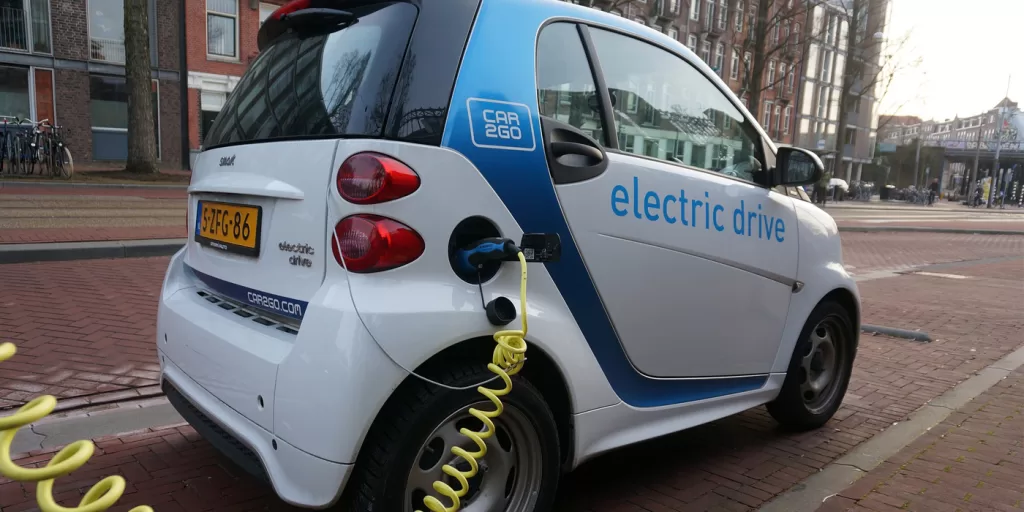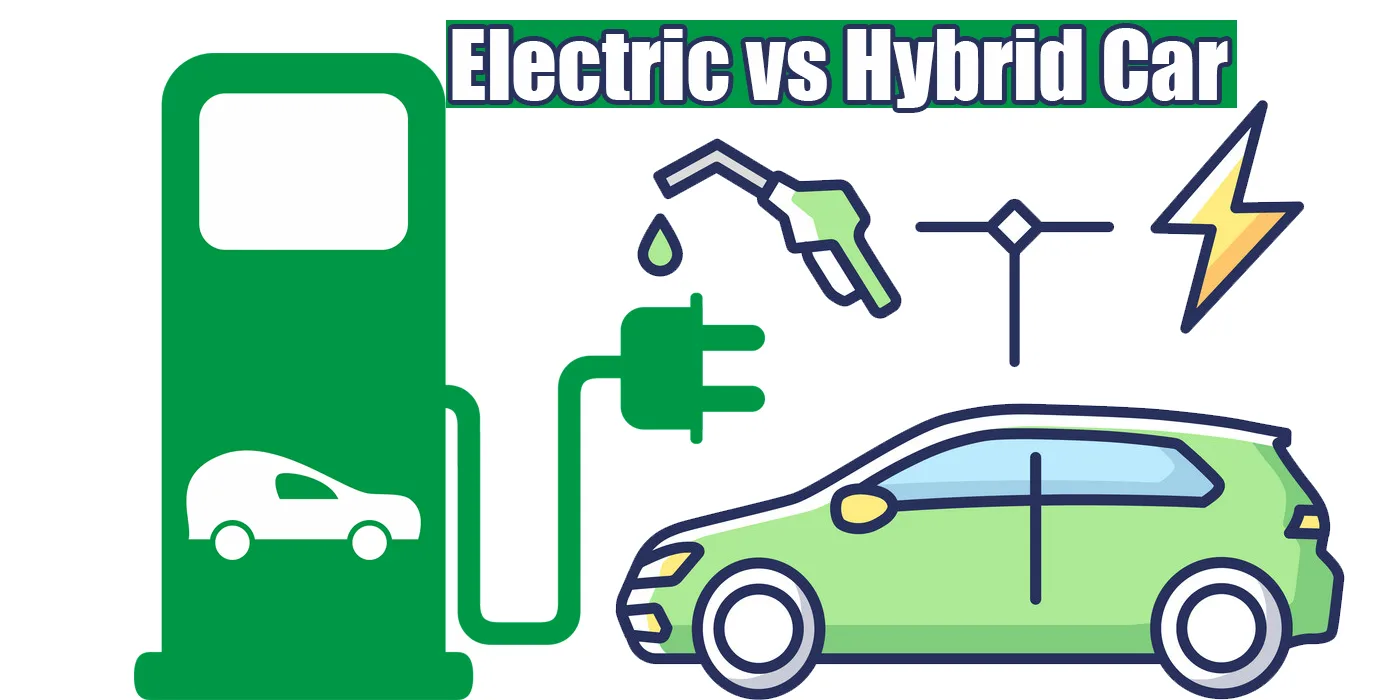Hybrid or electric? what to buy?
Electrification the addition of batteries and electric motors to vehicles’ powertrains isn’t just an idea anymore. The idea that was introduced more than 100 years ago has been actualized and grown to include electric vehicles of all shapes and sizes, with a myriad of technologies on board predominantly centered around efficiency and reduced emissions driving.
So as the world revolutionizes electric vehicles, there’s also a lot of talk on hybrid cars and electric car technologies and a lot of people are contemplating which one to go for. Well, each option has its advantages and disadvantages which are going to lead us to which of these technologies you should go for.
Car buyers have a list of priorities when comparing the lineup of new Toyota vehicles at the dealership. The biggest problem auto buyers face today is they actually don’t know the difference between the vehicles available and how each type will help them meet their goals.
Today we are going to discuss an effective difference between a Hybrid and an Electric car. Let’s have a look into what makes each of these electrification technologies different.
Electric vs Hybrid Car
Hybrid and electric vehicles represent opposite ends of the electrification spectrum. Some people may not really understand or know the difference between the two electrification technologies. As the name suggests hybrids can provide the best of both worlds. Teaming an electric motor with a gasoline
engine, a vehicle is a hybrid if it’s a hundred percent gasoline fuel but doesn’t rely solely on its gasoline engine for propulsion. Hybrids also have electric motors that sometimes power the car to delay the use of the gasoline engine and save fuel but at times both systems work
together for added power. Hybrid generates the electric power they need to function through regeneration braking. Here’s how it works, their electric motors function as generators when you press the brake, and the energy that’s regenerated during braking is stored in a small battery for immediate use the next time you accelerate from rest.
Full electric vehicles on the other hand have a battery that is large enough and an electric motor that is powerful without the need to include an engine or gas tank at all. Also, they don’t need fuel equipment such as a fuel pump line or even a fuel tank. The electric car battery gets charged by an off-board power source when it’s plugged into a charging station or wall outlet.
Types of hybrid vehicles
There are two types of hybrid vehicles, standard hybrids, and plug-in hybrids. Standard hybrids use regenerative braking and the internal communications engine to charge a battery pack providing supplemental electric power while the plug-in hybrids use both regenerative braking and power from an external source.
To generate supplemental electric power just like the standard hybrid a plug-in hybrid has a gas-burning internal combustion engine that turns on when maximum power is necessary for acceleration or climbing a mountain grade and also takes over when the battery pack reaches a minimum state of charge and it can no longer power the vehicle itself.
Like plug-in hybrids, the standard hybrid doesn’t require charging and cannot be charged at an electric car charging station. Plug-in hybrids generally have larger electric batteries than standard hybrids and the ability to drive only on electric power and to charge which makes them similar to fully electric vehicles.
Typically all types of hybrids have lower battery ranges compared to fully electric vehicles and the electrical capacity is designed more to supplement gasoline driving and to help maximize fuel efficiency. Some hybrids offer an electric-only driving mode which can only be available for low speeds or short ranges.
Range
Many hybrids automatically draw power only from the electric motor below certain speeds which is why they’re often much more efficient in city driving conditions. The plug-in hybrid is equipped with a much larger pack than hybrids. So it can offer anywhere between 20 to 35 miles of electric-only driving range and up to freeway speeds

Standard hybrids on the other hand typically offer electric-only driving only at low speeds and only for a mile or two and both types of hybrids are sometimes seen as an intermediary option in the transition away from fossil fuels and towards more renewable energy sources. A hybrid can be a great investment depending on your driving needs and lifestyle.
An important more about hybrids to remember is that although they do have an electric battery. It is smaller than the battery in a fully electric vehicle and can only support a limited range of electric driving.
So if you have a short daily commute or plan on using your car for mostly quick trips. So you may be able to run electricity for the majority of your driving time. If this is the case a hybrid may make sense as you wouldn’t have to use the combustion engine and spend money on gasoline very often.
Electric vs Hybrid Car – Which one you should buy?
Conversely, if your commute is long and you want to take your vehicle on lengthier trips a hybrid might not make sense this is because driving long distances that exceed the battery range capacity in your hybrid will make visiting the gas station your routine. You’ll spend more money on fuel. A hybrid is most efficient at saving money when your commute is short.
You can rely on small electric batteries for the majority of your driving time. One of the biggest benefits far more than hybrid counterparts. When you charge your electric vehicle battery most of the energy goes directly into the
moving wheels is your car which makes it a fully electric vehicle and has a higher range which is awesome for lengthier trips also when it comes to fuel cost fell electric vehicles make less of a dent in your bank account and talking about charging your electric vehicle, it’s quite easier nowadays unlike before when there are fewer charging stations.
An increase in the adoption of electric vehicles has led to the construction of more public charging stations and even if you make a local or a few hundred miles trips you can use less expensive home charges which eradicate the need to worry about where to the plugin.
Electric cars totally depend upon electricity ahead as the HYBRID CARS gain enough energy from a combination of electricity.
Fuel efficiency & Design
Another important thing about their difference is that electric cars are still yet to reach their extreme potential while HYBRID CARS give much better fuel efficiency or wide distance ranges.
Electric cars pollute lower emissions compared to hybrid cars who are dependent on an internal combustion engine. One of the biggest objections many drivers had to driving either electric or hybrid cars in the past was their lack of style.
But today’s buyers will feel very happy to know that the electric and hybrid cars available at Toyota dealers include an immense variety of extraordinary models that have many features you are going to enjoy a lot with any Toyota vehicle.
READ MORE :
- All About Aston Martin Cars
- Audi e tron Review
- Bently Continental GT price in India
- BMW X1 Price in India
- Brezza 2022 Launch date in India
- Why Bugatti Is So Expensive?
- Best car dealers in Dubai
- Concorde Motors Kochi
- Honda Showroom Kochi
- Indus Motors Thevara
- KIA DEALERS IN PUNE
- Lamborgini Showroom in India
- Nippon Toyota Kalamassery
- Rolls Royce Showroom in India
- Sai Service Pathadipalam
- Top 10 Car Showrooms Kottayam,
- Top 5 Car Showrooms Trivandrum
- BREZZA 2022 vs TATA NEXON
- Citroen C3 price in India
- 2021 Chevrolet corvette vs Mustang Shelby GT50
- Is Mercedes-Benz better than BMW?
- EcoSport Price in Kerala
- Upcoming Ford cars in India –
- Alcazar
- Cars price in India
- Hyundai Creta
- i20 Price in Kerala on-road
- venue price in India
- KIA Carens price in India on road
- Carnival 2021 India
- KIA Cars on road price in India
- seltos price in Kerala
- Kia sonet price in Kerala
- Landrover Range rover Evoque review
- Mahindra Bolero Neo
Also Read,
- Pickup price 2021
- Mahindra Thar on road price in Kerala
- XUV 300 on road price in India
- Mahindra XUV 700 on road price in Kerala
- Mahindra XUV700
- 2022 Maruti Suzuki Brezza
- Alto 800 Price in Kerala
- Alto K10 2022 | Alto K10 2022 model price
- Ignis price in India in 2022
- Alto 800 price in India
- Eco price in India
- Ertiga price
- Swift price On road in India
- Vitara Brezza
- Maruti Suzuki Wagon R price in India
- New Celerio 2021
- Swift Price in Kerala
- Vitara Brezza with price
- Wagon R Price in Kerala
- MINI COOPER SE
- MG Astor-
- MG Hector price in Kerala
- Nissan Pathfinder 2022
- Renault Triber review
- Most expensive Rolls Royce
- S cross price in India
- Skoda Kodiaq
- Super Cars worth waiting for
- Nexon Price in Kerala
- TATA Harrier on-road price in Kerala
- Tata Upcoming Cars
- Tiago Price in Kerala
- 2021 tesla model 3 standard range
- Fortuner Top Model Price in India
- Innova Crysta price in India
- Innova Crysta Price in Kerala
- Price for Toyota Yaris 2021
- Toyota Urban cruiser price in India
- Polo on road price in Kerala
